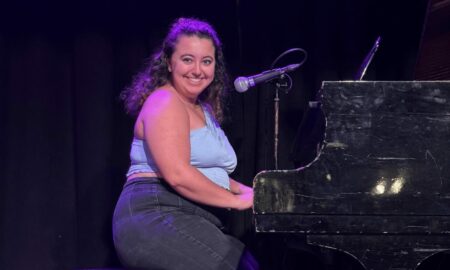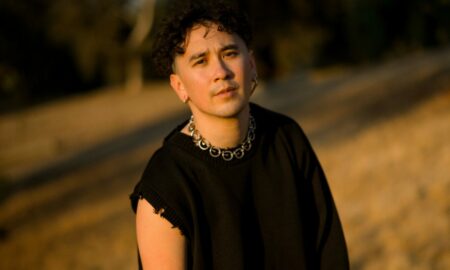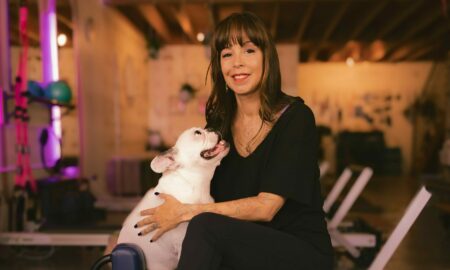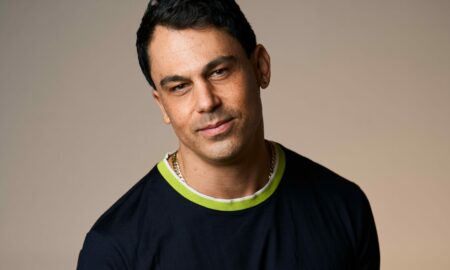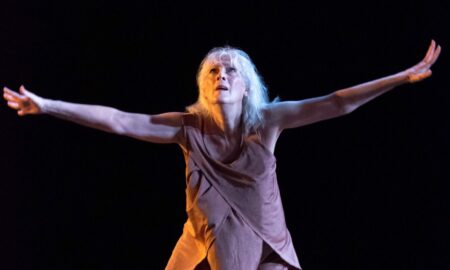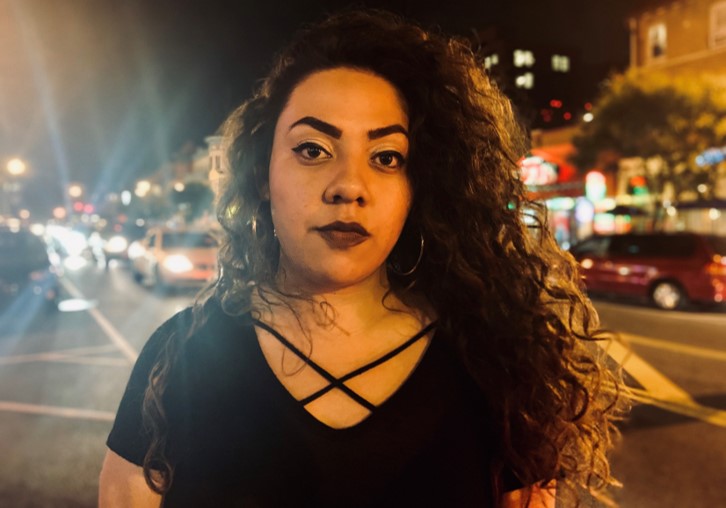

Today we’d like to introduce you to Janel Pineda.
Janel, please share your story with us. How did you get to where you are today?
I’m an LA-born Salvadoran poet, activist, editor, scholar, and educator. I write and perform stories related to my family’s experiences as Salvadoran migrants in the US, and I’m deeply invested in advocacy for migrant and refugee communities.
Simply put: I grew up loving stories. My grandmother is a wonderful storyteller and as a kid, I loved the way she spoke of El Salvador and its folklore. I had no idea that I’d grow to become so invested in Salvadoran poetry, but this was definitely the seed that has now sprouted into a lot of my current work.
Growing up in LA in an immigrant household, I read a lot, and I’m grateful to have parents who did all they could to invest in my academic journey. I wrote my way through my teenage years and began sharing my work aloud at local bookstores and open mics. Places like Da Poetry Lounge in West Hollywood exposed me to incredible poets, and especially to powerful Black and Latinx voices whose work was crucial to developing my ethos as a deeply politically-motivated writer. I went on to use poetry as a way of processing and unpacking systems of power tied to race and ethnicity, gender, ability, and more—which I continued, through college and beyond. I began to understand poetry not only as empowerment but also as a tool for collective healing and community organizing.
In the last year, immersing myself in Central American community in LA has been continuously inspiring. LA is a special place for Central American community, and I’ve learned so much from the work of organizations like CARECEN-LA, the Salvadoran American and Educational Leadership Fund (SALEF) and the Los Angeles chapter of the Committee in Solidarity with the People of El Salvador (CISPES). All in all, I am grateful to be surrounded by such powerful, talented, resilient, and committed organizers, creatives, scholars, educators, and healers. When we come together, I feel affirmed in our purpose and our shared vision for a liberated future—one we are working towards building, together.
We’re always bombarded by how great it is to pursue your passion, etc – but we’ve spoken with enough people to know that it’s not always easy. Overall, would you say things have been easy for you?
While I am continuously astounded and inspired by the resilience of Central American communities, it pains me to know that this resilience has always been a necessary condition for our survival. I think, often, about the limitations of my own work as a poet and perhaps also, the limitations of poetry more broadly. Sometimes it can feel futile to be focused on a poem when I turn on the news and see the ongoing dehumanization of Central American lives, or when I think about the very real and dangerous circumstances faced by our people.
But I also think of Audre Lorde, who wrote, “poetry is not a luxury,” but rather “a vital necessity of our existence,” emphasizing the ways poetry enables our survival. I think of the poet and organizer Aja Monet, who rightfully acknowledges: “Poetry alone cannot change the material conditions of an unjust society, but I challenge anyone to name a substantive freedom movement that does not have poetry.” I think of poetry’s capacity to guide us toward imagining better, toward creating better. I think of the poems that have helped me access the narratives and histories that were long denied to me. I think of the risks poets have taken, and the consequences they have endured, to render truths through their poetry. I think of the people who come up to me after I read my poems and share the way my work has moved them or made them feel seen in some way. We need poetry, now as ever. This is what grounds me in the work I do.
So, as you know, we’re impressed with La Piscucha Magazine – tell our readers more, for example what you’re most proud of and what sets you apart from others.
I am a founding editor and translator for La Piscucha Magazine (lapiscuchamagazine.com), a recently released multilingual literature, arts, and culture magazine created by Salvadorans within and beyond national borders. This project seeks to create a transnational dialogue between El Salvador and its diaspora in an accessible, online format. Despite all the ways Salvadoran communities have been divided—as a result of war, migration, deportations, and other forms of displacement—I see La Piscucha Magazine as a way of bringing our community together through art. I also think La Piscucha Magazine presents an invitation to those outside of our community to access Salvadoran art and culture, and especially: to understand El Salvador and its diaspora beyond the limiting and often dehumanizing portrayals we often see in media and xenophobic rhetoric. The website features poetry, prose, articles, interviews, and artwork from the Salvadoran community, and is currently available online in both English and Spanish.
It has been a dream come true to work on this project with fellow Salvadoran creatives – especially Willy Palomo, Alexandra Lytton Regalado, Efraín Caravantes, and Ruben Reyes, among others. I am thrilled that the website is now live. For the magazine, I translated poems by Josué Andrés Moz, a brilliant writer and friend who I met while performing together in Festival de Poesía Amada Libertad in El Salvador last summer. It’s wonderful to see how much poetry has brought many of us together, and I believe in La Piscucha Magazine as a platform to continue building and strengthening bonds between Salvadoran artists in homeland and diaspora.
In May 2019, I organized the diaspora launch for La Piscucha Magazine, held at the Central American Resource Center (CARECEN-LA) in Koreatown. So many people came out to support and learn more about our work. At the event, we were also able to raise funds for CARECEN and SALEF, organizations that are currently doing vital work for asylum seekers at the border. This was especially important to me because this was a perfect example in which our community came together in the name of poetry and art, while also mobilizing in support of direct aid for the broader causes at stake.
So, what’s next? Any big plans?
I am headed to London this fall as a Marshall Scholar, to begin a master’s program in creative writing and education. I’m excited to be in a new, vibrant city—particularly one as diverse and multifaceted as London. In terms of my poetry, I’ve got a few ideas and plans for manuscripts in progress, and I hope they’ll manifest into chapbooks and/or a full-length collection in the coming years. For now, I’m grateful for the privilege and space to focus on my craft, to share my words with audiences who are willing to hold space for them, and to continue learning from fellow artists and organizers.
In regards to La Piscucha Magazine, I’m excited for the potential of this project to continue expanding as we cover more and more Salvadoran literature, art, and culture, and as more folks learn about our work. I’m particularly looking forward to conducting interviews between Salvadorans in diaspora and homeland and finding ways of continuing to build bridges and break down the (national, linguistic, etc.) borders that divide us.
Contact Info:
- Website: janelpineda.com
- Instagram: @poetaconganas
- Twitter: twitter.com/pineda_janel
- Other: lapiscuchamagazine.com





Getting in touch: VoyageLA is built on recommendations from the community; it’s how we uncover hidden gems, so if you know someone who deserves recognition please let us know here.












